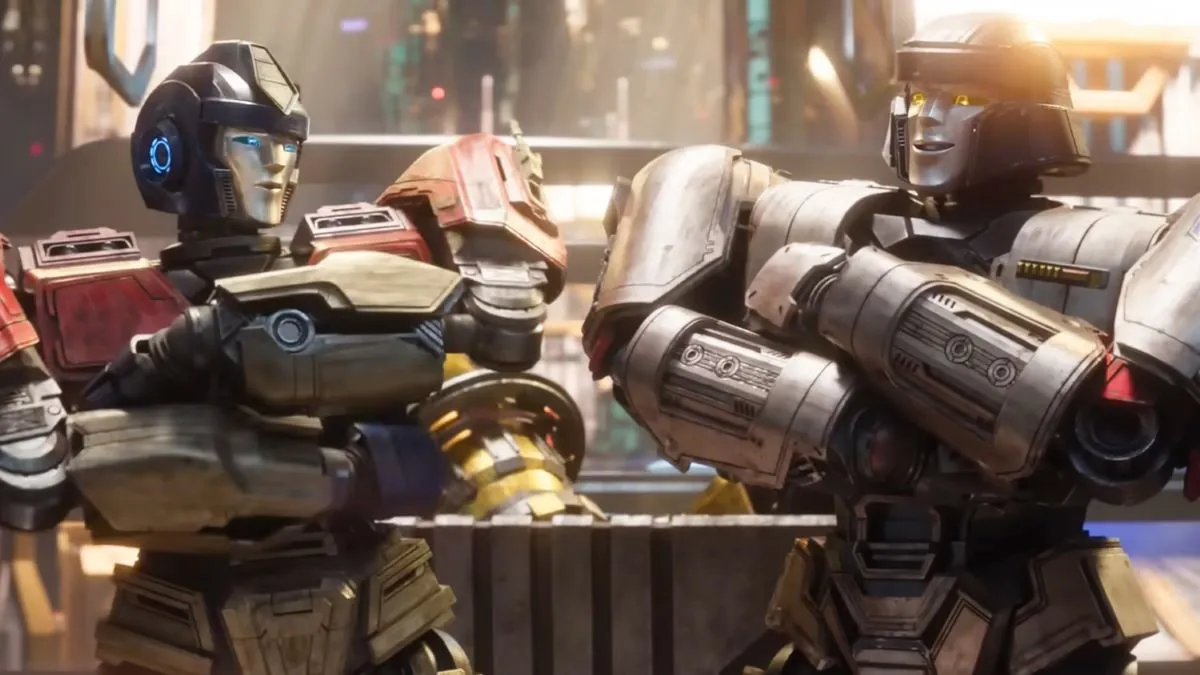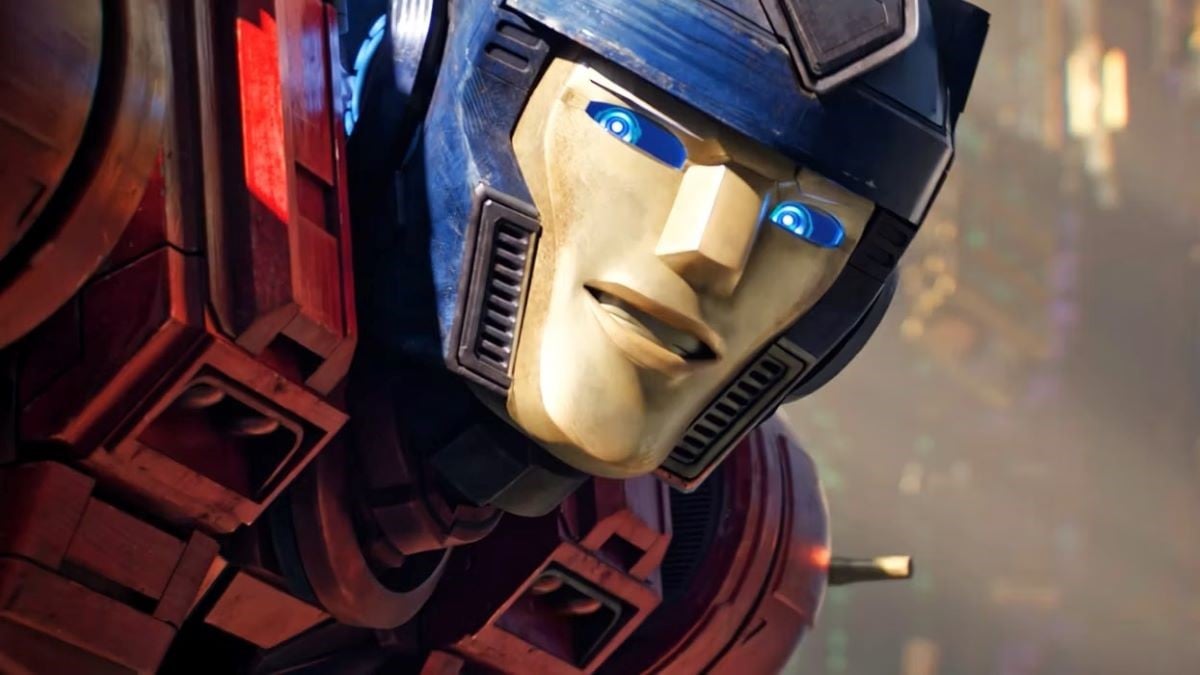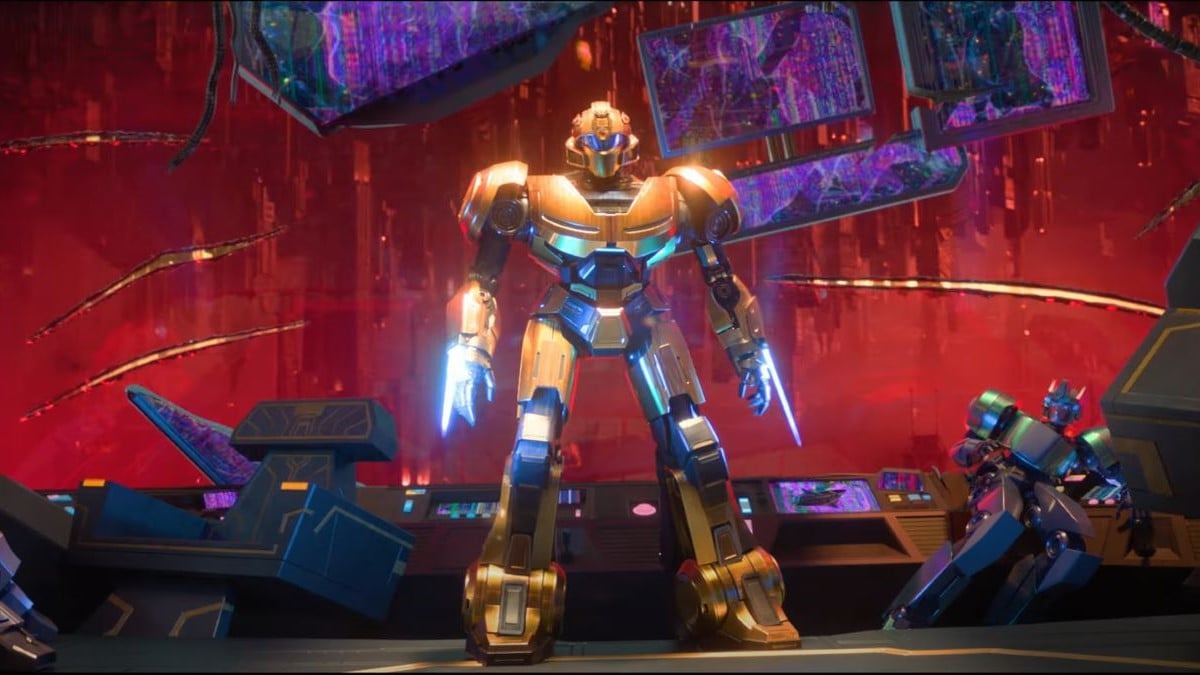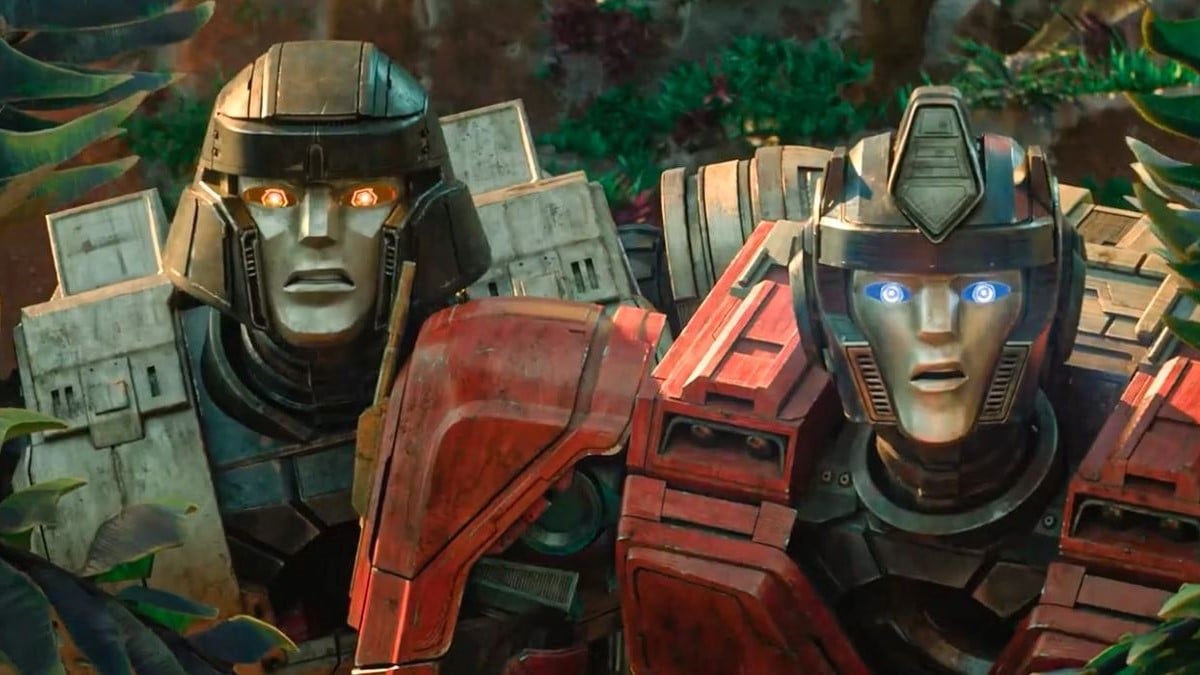
In retrospect, it was only a matter of time until a film burst onto the scene to make a case for a brave new world of franchise filmmaking. It is the stuff of undiluted poetry, however, that this film happens to come from one of the most infamously troubled franchises ever to hit the big screen.
But to even give an ounce of thought to the Michael Bay schlock of yore feels counterproductive when talking about Transformers One and everything it champions — animation, originality, love for the source material, robust-yet-ambitious storytelling, and taking pride in imperfection. If there’s any justice in this world, this beautifully sincere film will receive the support it needs to evolve into a trilogy.
Directed by Josh Cooley and penned by Eric Pearson, Andrew Barrer, and Gabriel Ferrari, Transformers One stars Chris Hemsworth and Brian Tyree Henry as the voices of Orion Pax and D-16, two Cybertronian robots who work as miners in the city of Iacon, and also happen to be best friends. These two, of course, are destined to become the two titans we know today as Optimus Prime and Megatron, but the road they take to get there begins when the bright-eyed, rambunctious Orion Pax drags the more cautious D-16 on an adventure that turns very dark, very fast.

Right from the opening scene, Transformers One loudly and inventively announces that it understands the assignment. The film opens with Orion Pax sneaking into the Iacon City archives and finding a recording that tells him the history of Cybertron, of the creation of the first 13 Prime warriors, and of the legend of the Matrix of Leadership. With bright-eyed awe, he takes in all this information in hopes of using it to create a better world, mumbling questions to himself as the hologram rhymes off dates and MacGuffins.
That is to say, Transformers One understands we audiences do not give a single solitary hoot about the contrived lore so many franchises dump on us in a desperate attempt to get us to buy into the world/product. But Orion does care about it. This information gives him pride in being a Cybertronian. It inspires him and gives him something for his hope to run towards. This all helps us invest in Orion as a character while still doing the dirty world-building work; we care about Orion, and Orion cares about the lore.
This occurs in a later scene as well, where Orion, D-16, Elita-1 (Scarlett Johansson), and B-127 (Keegan-Michael Key) are confronted with more lore that paints a horrifying revelation. We audiences don’t care about this lore, but we do care about these characters, and these characters are personally devastated upon being confronted with this information. What would have been a tired exposition dump instead plays as a genuinely heartbreaking emotional beat. This is just the first example of Transformers One’s storytelling intelligence, which has, by and large, become increasingly extinct in the franchise filmmaking space.
Back to the characters for a moment. The core voice-acting roster of Hemsworth, Henry, Johansson, and Key all sell their characters immaculately, but Hemsworth and Henry deserve an extra-special nod as Orion and D-16. The clear care the pair took in crafting voices for these two, largely unprecedented iterations of Optimus Prime and Megatron, is palpable. Both manage to track their characters’ respective arcs by pivoting around a core emotion (confidence for Hemsworth, rage for Henry), all without sacrificing the youthful energy that makes up the foundation of their characters at this point in their lives. It’s fantastic work from the Marvel vets (speaking of franchises that could do with a brighter future…)

Beyond that, there’s a remarkably satisfying cohesion to the rest of the film’s technical elements that allow it to play with emotion and tension in a sharply interesting manner. The standout example is a scene wherein the gang encounters a Quintesson mothership (i.e. the bad guys) and needs to be immensely careful how they move around the canyon, lest they get blasted to smithereens. Here, the awe-inspiring electronic soundtrack by Brian Tyler goes completely quiet, as though it’s holding its breath until the danger passes.
At one point, it looks as though some of the group is going to get caught, but this is a movie — we’re almost certain this close call with certain death will swing in favor of the good guys. But, because the film is animated, it can play with the frame and capture angles of this close call in ways that enhance the tension; the more fluid movement of these animated characters enables the tension to rise and fall far quicker than a live-action film could have pulled off. This allows the tension in the scene to do its job without embellishing its mostly fabricated stakes (which otherwise would have kneecapped the tension entirely).
This relationship to tension is apparent throughout the film, and flows into Transformers One’s comedic beats just as frequently as its scarier ones. This is where the aforementioned imperfections start to come into play.
To much of its credit, the film’s funnier moments land far more often than they miss. That being said, where it maintains a degree of control over its relationship between tension and drama, it’s missing that same control over how it uses that tension for comedic purposes. This results in some jokes that are very noticeably creative, entertaining, and chuckle-worthy, but are out of place in the context of the scene in which they exist. The sequence where the foursome first learn how to transform is a key example.

The other incidental growing pain of Transformers One is the relationship between Orion Pax and D-16, which is arguably the most important tool in the entire narrative. It’s far from unsatisfying, and is in fact fairly nuanced, but it only really works on a thematic level rather than an emotional one, which is somewhat disappointing.
On the one hand, we have Orion, who is consistently defined by self-sufficient hope and individual freedom, and on the other, we have D-16, who is consistently defined by both the fear and reverence of power. This gives the film an ideological clash to work with conflict-wise, which further expands into some coming-of-age nuances. They never clashed in any severe way before because, up until now, they led very simple lives of mining and fanboying over the Primes. But now that this adventure has complicated their lives and forced them to grow into their true selves, they outgrow one another in the process.
This thematic dynamic works quite well, but its prioritization over any emotional dynamic is inconsistent within the specific organism of Transformers One, whose modus operandi is predicated upon us knowing these characters, this franchise, and, to an extent, the nature of franchises in general. It knows that we know Orion Pax and D-16 are going to be enemies by the end of the movie. There’s obvious reverence for the history of this franchise rather than any sort of canon, to be sure, which is why this take on these Transformers is so refreshing, so this thematic dynamic is something we need very little help being sold on. And yet, this moot thematic depth takes precedence over the emotional aspect of their bond, which isn’t nearly pronounced enough on its own for us to invest in their friendship, and reads as a missed opportunity given how fascinatingly novel that emotional heft could have been.
But at the end of the day, you can’t score home runs without risking some misses, and Transformers One goes above and beyond to showcase itself as the prime prototype for franchise films going forward. Crossovers and cinematic universes be damned; this is just a mighty fine, compartmentalized, intelligently-written, and decidedly Transformers story that both respects the actionable power of animation and also demonstrates why the medium deserves such respect from the rest of us. Indeed, like Orion Pax himself, Transformers One is at once a beacon of hope that the IP blockbusters of tomorrow would be wise to take notes from.
